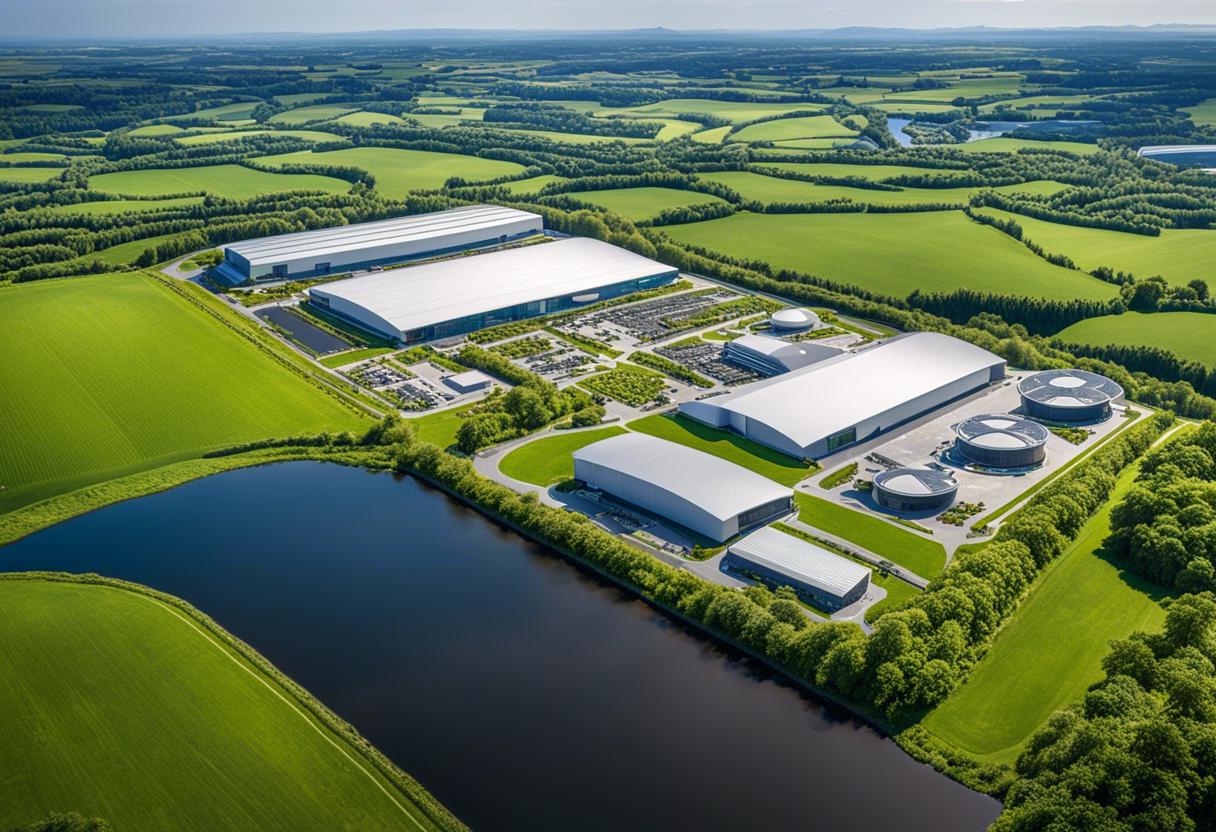Intel has played a significant role in Ireland’s industrial arena. Sealing the deal in 1989 was crucial for IDA Ireland, and Intel’s subsequent substantial investment (around €30 billion and still growing) became a beacon to attract further international investments. Wherever Intel established a presence, others soon followed suit. Its actions have a significant impact.
As part of a strategy to fund its development of futuristic chip plants, Intel is contemplating the sale of a portion of its Irish operations to a global venture capital fund, ostensibly to free up cash – an estimated €11 billion – to channel into new tech and manufacturing plants. However, speculation remains about how much of this funding will persist and be utilised locally.
Initial whispers that the money would be used for the extension of a new ‘Fab’ in Leixlip seem to have been dispelled. Intel inaugurated a major new plant – Fab 34 – there last year after a hearty €17 billion investment. Unfortunately, Ireland did not secure the establishment of a larger site in 2021, which has since been committed to Magdeburg, Germany, a venture backed up with a massive €10 billion contribution from the German government towards a €30 billion investment. For this project, Intel had indeed considered a location in Oranmore, Galway, but eventually decided that foreign proposals were more compelling. Lengthy planning processes were a deterrent in Ireland’s case. Power and water supply issues in Ireland have also provoked apprehension among large corporations like Intel. Additionally, the generous financial incentives available in Germany were also allurements.
While Ireland may not be the chosen location for a new Fab, there’s a chance that investment might be made to upgrade the existing plant. Nonetheless, other potential locations will be weighed as Intel ponders on the allocation of the funds generated from selling a percentage of the Leixlip operations. The outcome of this scenario will provide a fascinating insight into Ireland’s current standing. Finance Minister Michael McGrath hints that discussions are ongoing between the IDA and the company about the investment plans, with the possibility of the State offering financial support. One can only wait and see what transpires.
The company is set to increase its investment activities in Europe and the United States, moving away from Asian-based supply chains. European governments, now with more freedom to provide State aid per the EU Chips Act, are a prime target as the company aims to maximise its financial gains. This Act, intended to bolster the EU’s stature in crucial sectors like chip manufacturing, has a parallel in the US, with similar laws stipulating over $50 billion in investment, potentially rising above $200 billion by the early 2030s. Notably, Intel is set to obtain $20 billion from the US Government for the development of new plants across four states.
The competition within the realm of foreign direct investment (FDI) has changed significantly for Ireland. No longer pitted against smaller nations, Ireland now competes in the big leagues against larger countries, who are willing to use major financial resources for winning investments. This includes grants, energy subsidies and more. Big technology is becoming more than just a major industry; it is an arena of geopolitical manoeuvring as large nations aim to earn control over key technological advances, or at least move them to friendlier territories. Microchips, especially cutting-edge ones deployed in areas like AI, are now deemed critical national resources. Meanwhile, Ireland stands firm in its belief that hefty financial incentives should not dictate the direction of FDI, though it might lose out in a contest of subsidies. However, the Chips Act and conversations around enhancing Europe’s strength and competitiveness, voiced by countries like France, point to a different direction.
Ireland has reaped significant benefits from American companies going global, but the trend is reversing. While a re-emergence of Trump could hasten this change, it is inevitable. In this newly configured world, Ireland’s strategic stance needs careful reconsideration. Recent major projects, notably in the pharmaceutical sector, indicate that Ireland maintains competitiveness and remains attractive in certain areas. Long-established political ties and a close relationship with the United States might keep Ireland in a preferable spot for American companies. Regardless of who is in the White House, efforts are being made to redirect investment to the US, specifically crucial research and development activities.
There is an increasing pressure on Ireland’s foreign direct investment (FDI) offerings from multiple directions. While the country has enjoyed a robust few years, signs of complacency are evident. Crucial improvements in planning are yet to be complete. Major infrastructural projects, imperative for future supply of water and electricity, are either in a standstill state or moving at a snail’s pace. Housing costs and availability continue to pose significant challenges. Investment in tertiary and continuing education is falling short. While Ireland might have weathered the storm of OECD’s tax reform, future European conflicts may be on the horizon.
The developments surrounding Intel can be seen as an important precedent. The need for funds prompted Intel to strike a similar bargain in Arizona for expansion. The specifics of the financial agreement in Ireland and the allocation of funds remain unclear. Even though Intel possesses lucrative operations in Ireland, employing and progressively increasing 6,500 staff, it could hopefully retain its status. But the crucial question remains: Will Ireland continue to receive its fair share of avant-garde investment from Intel and other major enterprises?
Ireland has benefited greatly from FDI, but the long-term vision of these corporations means Ireland must prove its continued viability as an investment location. A necessary restructuring of Ireland’s economic narrative is being increasingly advocated. If Ireland becomes distracted, risks await- such as the gradual shifting of fresh investment. This doesn’t imply aberrant shutdowns or swift losses in corporate tax incomes. However, it will result in a slide down the investment destination ranking, with all its long-ranging ramifications.

